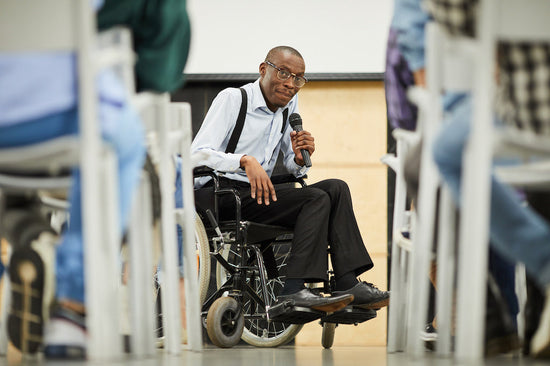
What Does a Coma Feel Like?
Imagine being beaten into a coma by strangers. In this hybrid memoir, Jason Thornberry answers the question: what does a coma feel like? He describes what waking up from a coma feels like providing us with a glimpse into those first waking moments.
🧠 First-person insights into what it feels like to be in a coma, from vivid sensations to complete darkness.
👁️🗨️ Real survivor experience of waking up from a coma and trying to make sense of time, memory, and reality.
🛌 Explore what happens during a coma , including moments of awareness, confusion, and emotional impact.
What Happens When You're in a Coma?
I stood in the middle of the street in my boxer shorts, drunk, kicking passing cars. A white Camaro pulled over, and two men got out. At least, that is what someone told me. When I woke up, I couldn’t remember any of that night or much of the month that came before it.
I was a musician. And I barely remembered co-writing an album’s worth of material; I barely remembered traveling to San Francisco to record that album with my band. I barely remembered performing the music from that album at an enormous festival concert.
After a dozen years spent performing in living rooms and garages, backyards and coffeehouses, bars and nightclubs, college campuses and record shops, museums and outdoor malls, county fairs, concert theatres, and on television and radio, I was finally ready to tour the United States—to live on the road. I was ready to throw my hat into the ring and try to make music professionally.
But I barely remembered any of the momentum that had brought me there.
What Led to My Coma: Life Before Everything Changed
Leading up to that night, I lived with bandmates, crammed into a studio apartment in Costa Mesa. I slept on the floor in a hallway. Subsisting this way allowed me and my band to save money. And it allowed us to concentrate on our music in ways that had been impossible for my other bands in the previous decade—the decade I had spent planning, rehearsing, performing, recording, and remaining anonymous.
Deep-rooted obscurity had dogged every group that I had ever played with before. I was determined to change that. Leading up to that night, I had played the drums for alternative rock, punk, and hardcore bands, a surf rock trio, and a classic rock cover band assembled to perform in Taipei. One of my bands was scouted by a series of independent labels; another by Columbia and Capitol Records. Others existed in a basement compartment of nameless obscurity—the one-offs, the side projects, the forgettable assemblies.
I lived with my newest band—until the night of the housewarming party. A girl I was dating had recently moved to Long Beach. Outside of her rented house was where I stood, apparently freed of my clothes, kicking at cars as they passed. The two men who emerged from that white Camaro beat me until they thought I was dead, breaking my nose and my teeth and punting my head against the nearby curb like a soccer ball.
I awakened from being in a coma in slow motion from the mouth of a colossal void.
What Does It Feel Like to Be in a Coma?
What does a coma feel like? Being in a coma is nothing like the cinematic depiction of prolonged unconsciousness—no bright light, no violins, no cosmic tunnels to emerge from like a newborn. In movies, the coma is picturesque, as if the mind in this state is forever remembering. Skeletons peek, old lovers beckon from the hallway, and long-dead friends remind you of promises as people crowd your bed, their hands together in prayer (even the atheists).
In movies, the comatose are seen lying peacefully in beds, their hair combed, free of breathing tubes or Intracranial pressure probes piercing their foreheads. Tranquil. Dignified. They don’t wear diapers or catheters. Movies treat being in a coma like a series of extended naps.
In a movie, when it’s time to wake up, the comatose awaken with a start. Their eyes burst open—and they gasp, yanking out their breathing tubes and IVs the way you would wave away a mosquito or remove an uncomfortable hat. Then they roll out of bed like a firefighter, knees bent, agile, alert, and ready. My coma didn’t happen in a movie.
Being in a coma feels nothing like the cinematic depiction of prolonged unconsciousness—no bright light, no violins, no cosmic tunnels to emerge from like a newborn.
What Does it Feel Like to be in a Coma and Wake Up?
Instead, when it was time for me to wake from a coma, wakefulness worthy of measurement visited me in tiny doses: moments here, minutes there. Like the movements of a disoriented slug, my initial coma recovery was mostly invisible, and it was several weeks before I was more than minimally conscious. Catatonic. Motionless.
When I woke up from being in a coma, I opened my eyes a fraction of a centimeter eight days into my hospitalization. I was not aware of my surroundings: I did not see my family or my friends standing around my bed; I didn’t hear them talking to me; I didn’t feel them touching me. This is what it feels like to be in a coma and wake up.
A hospital employee aimed a flashlight into my crusty eyes, and put saline drops in to keep them from getting dry. Bloody, bruised, swollen, unresponsive, and flat on my back with my eyes partway open, I resembled a corpse.
St. Mary’s Medical Center in Long Beach, where the ambulance delivered me, became my waking trance—suspended in gelatin, hands floating, body pinwheeling, the words of the doctors stopping short of a layer of gauze and bandages. An astronaut hanging at the end of a cord, my real purpose was to sleep.
My diagnosis was simple, and it was complicated: Traumatic brain injury. My medical chart was more specific about me being in a coma.
HISTORY OF PRESENT ILLNESS: This is a 28-year-old white male status post blunt head trauma on 07/20/99 admitted to S. Mary’s Medical Center. Head GCS on the field was 3. The patient was comatose in the emergency room. CT of the head was negative for any bleed. The patient was also intubated upon admission and self-extubated on day four. The patient also included a right cheek laceration, which was repaired. The patient was also treated in the Intensive Care Unite with Levaquin. The patient developed multiple pressure ulcers on the occiput and bilateral seat. The patient required a PEG placement for feeding, which was done on 08/10/99.
MEDICATIONS: Zantac, Colace, Zanaflex, BuSpar
ALLERGIES: NO KNOWN DRUG ALLERGIES
FAMILY HISTORY: Noncontributory
SOCIAL HISTORY: The patient apparently lived with two roommates in an apartment, as per the mother, no smoking and drug history; however, positive for ethanol use. The patient was intoxicated on admission to St. Mary’s Medical Center. Apparently, the patient worked as an administrative assistant and played in a rock-and-roll band.
REVIEW OF SYSTEMS: The coma patient is nonvocalizing.
Waking Up from a Coma: My Mother’s Vigil and My Silent Recovery
Upon waking from a coma, I learned that I was—according to my mother’s explicit instructions to the nurses—to be bathed every morning, regardless of the fact I was confined to a bed. And because I was unable to speak, I did not complain when the nurses hosed my naked body down with cold water, wheeling me back to my room, where I shivered in my gurney. Luckily for the nurses, my mother never knew.
While I lay staring at the ceiling, my mother talked to me. She touched my face. She brought my stereo and filled my room with music. She invited my friends. And she kept a journal of the early part of my hospitalization.
She maintained a daytime vigil, putting her job on hold. My mother was a medical transcriptionist, and her employers understood my case's seriousness. No one knew when or if I would be alright after being in a coma, but that didn’t stop my mother from showing up every morning and leaving to make dinner for my stepfather and get a bit of rest.
A legal pad lay on a table beside my bed. A diary of recovery from being in a coma. My mother encouraged visitors to write in it. Most of the entries were hers.
DATE: 8/3/99
TIME IN: 8:40 am
TIME OUT: 4:30 pm
Small amounts of music. Lots of soft talking. Jason seems more tired/sleepy today. He is following commands both to me, the Doc, and his physical therapist. Shows occasional tremors in the left arm. He is still progressing. Needs a fan — he’s hot! (& damp).










